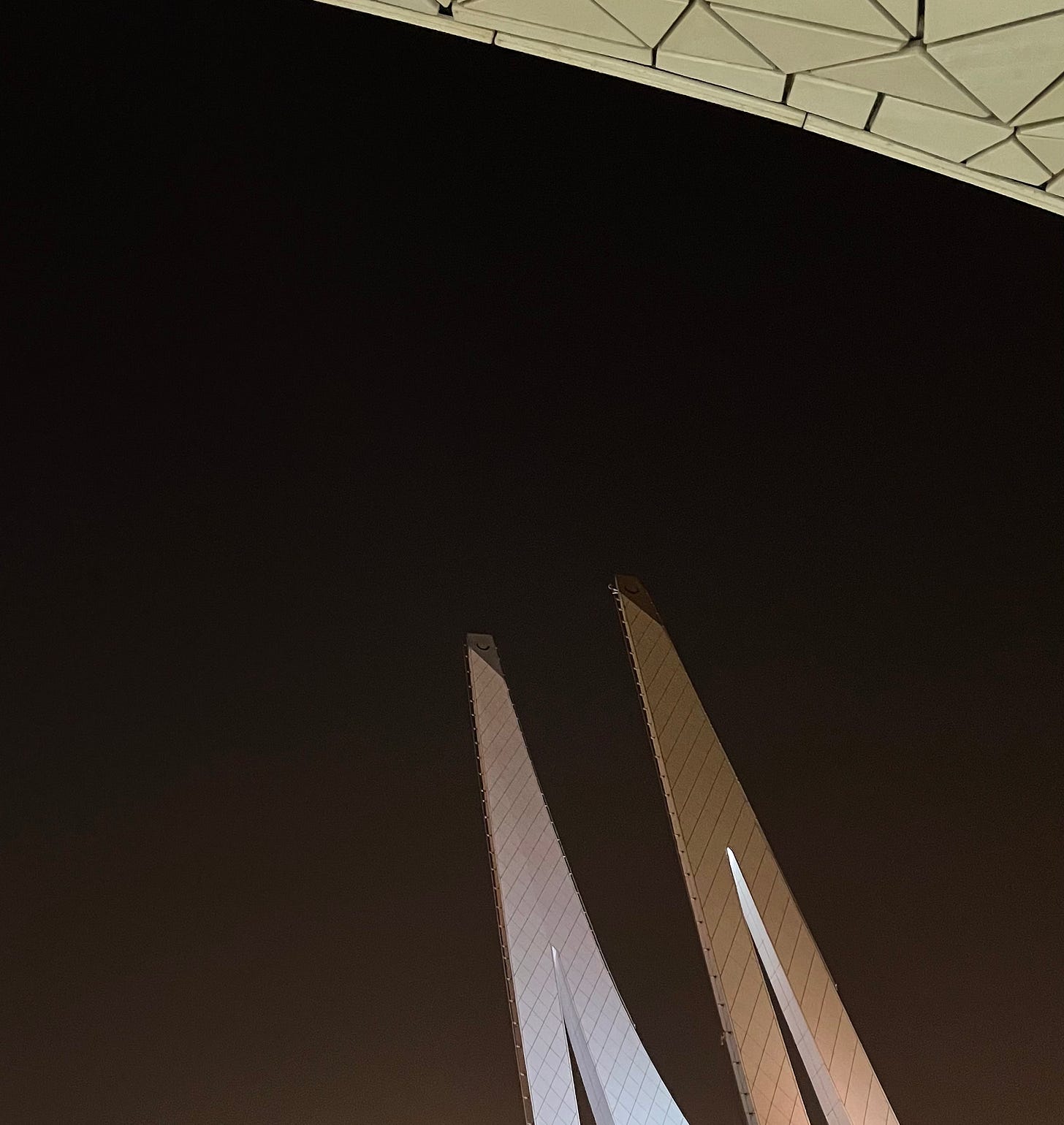Rania, Jakarta, 23rd May.
(To preface this entry: sorry for disappearing in April (and most of May!) We both took some much-needed time off and are now back with hopefully routine posting!)
I came across a few posts and tweets about how ideally, Ramadan should not be merely a temporary increase in spirituality and worship, but rather an augmentation, an improvement in one’s daily lives. However, I don’t think anyone would argue there is any fault in having that end up being the case. Changes are incremental, and those concerning worship/faith even more so, with the two being such personal facets of our lives. What I feel is more rewarding is not forcing change, but recognising the small miracles and probably brief instances that often unknowingly become catalysts to the blossoming of faith.
This year, Ramadan fell in the month of April. It’s been a while since we were allowed to be somewhat festive during Ramadan/Eid. Last year, even when I was lucky enough to spend most of it at home with my family, we couldn’t do much apart from occasionally ordering in takeaway for iftar and pray taraweeh at home. With most Covid restrictions lifted this time round, going out for iftar with friends or going to taraweeh at the masjid felt a little bit like a cautious toe-dip into a pool, re-learning the forgotten skill of swimming. It felt strange, and exciting, but also a relief. Even when the mind forgets how to swim, the body remembers; and even when memories of such festivities fade in our minds, we go through the motions without a second thought.
I never paid much attention to the act of night prayers. In fact, often I found them a nuisance, an extra chore to do before I went to sleep, even when I was aware of their significance, being exclusive to the month and all. It felt like I had much more important things to do other than spend half an hour or forty minutes in prayer all by myself—there was always something more urgent.
This year I started going for taraweeh again at the masjid—and then, for the first time in a very long time, for qiyam when I spent time at my parents’ (the extension of taraweeh nightly prayers performed in the last third of the night). This time, I did not go as a disgruntled child being carried by my parents, who can’t leave me alone in the house. I went of my own will as a very much awake adult.
It’s strange—even when half my night is taken up by prayers, I suddenly felt like I had all the time in the world (such a stark contrast to the constant time scarcity in my daily life). Yet for all the time I felt like I had, nothing felt pressing. Nothing felt urgent—except to get dressed in time for qiyam.
I don’t mean to psycho-analyse the heck out of this experience, or to tout this as a spiritual turning point of any sort. I simply wanted to reflect on how, after feeling suffocated for so long during the past few years by my own anxiousness and explicable worries, I felt like nothing in this world—work or achievement or otherwise—mattered as much as I made them out to be.
For once, there was nothing else I had to do but spend the night in quiet prayers, listening to the imaam’s melodic recital and standing in the slightly humid, yet calming, air of the outdoor masjid.
And I hope that all of us, in some phases of our lives, are able to find pockets of peace that will overtime unfurl into an all-consuming blanket of contentment.


